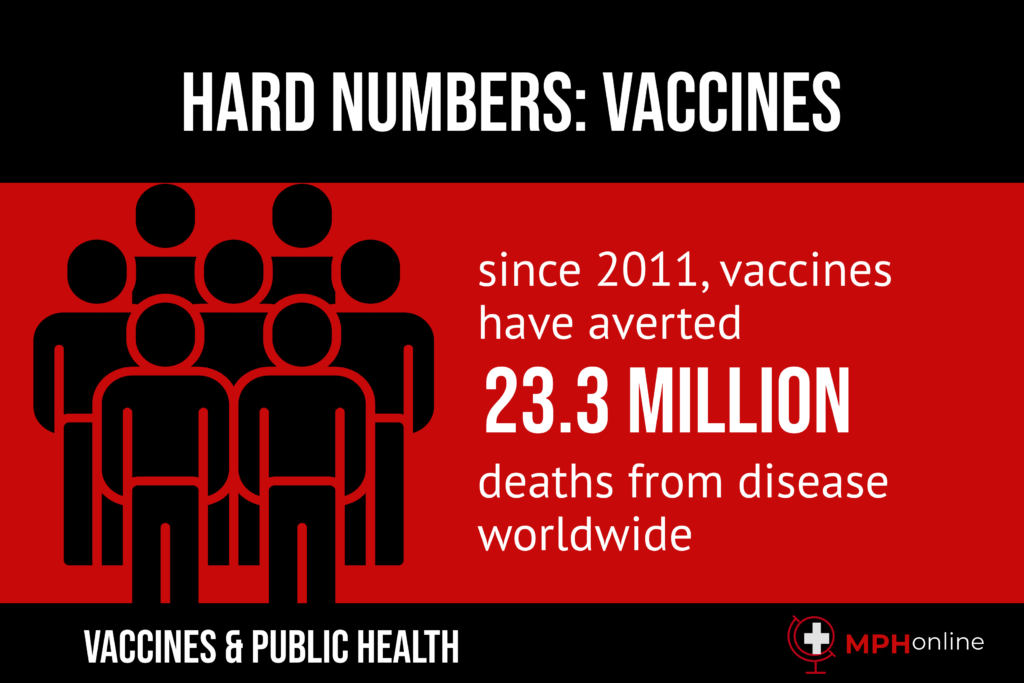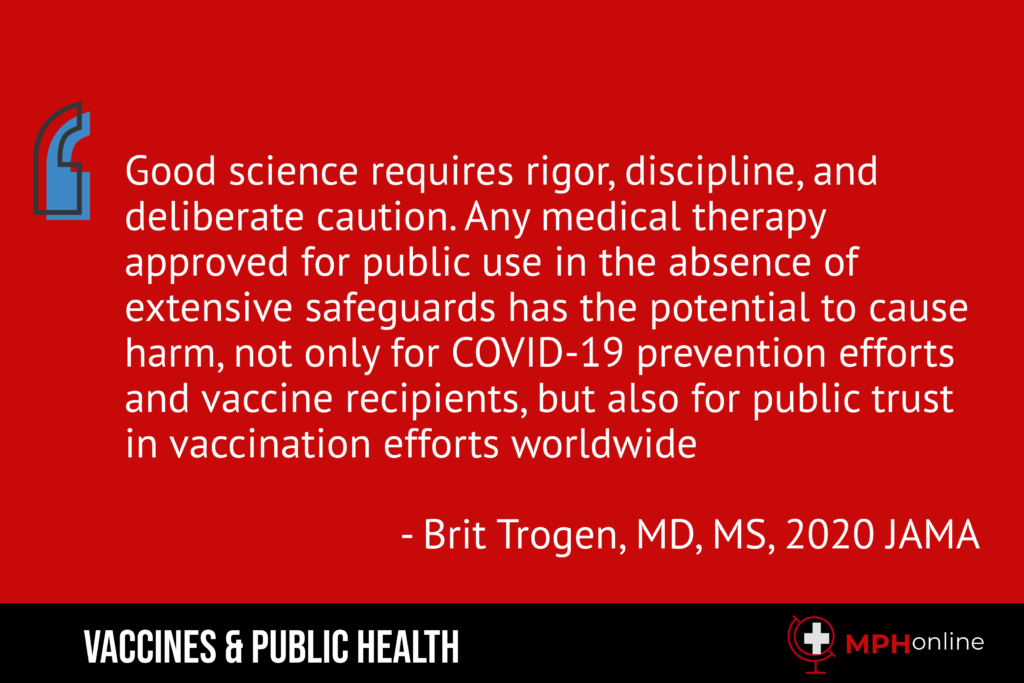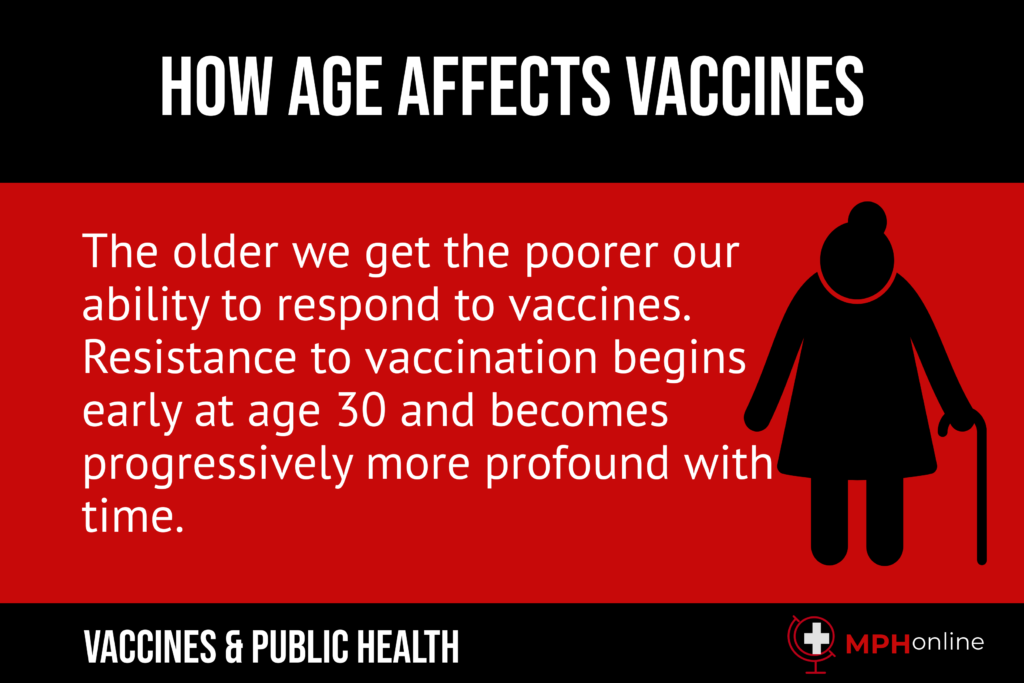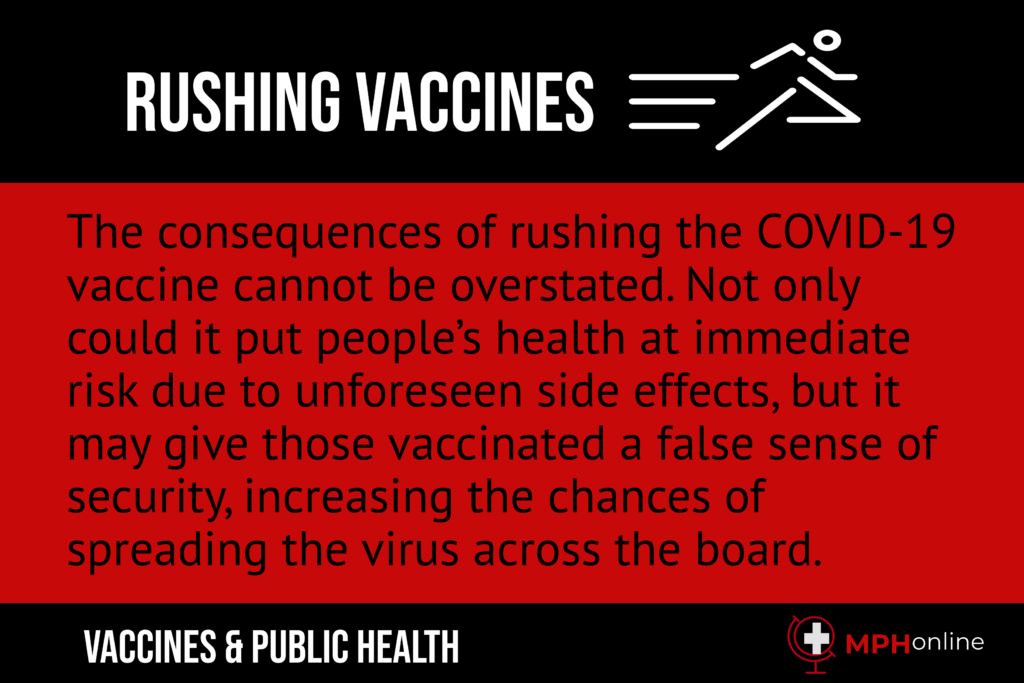The coronavirus pandemic is a problem that impacts many families and lives around the country and the world. Due to the dangers associated with the virus and the growing rate of death among populations around the world, efforts to develop a vaccine are gaining attention. By fast-tracking the coronavirus vaccine, it is possible to halt the spread of the virus among at-risk populations and groups. While efforts to develop a vaccine are found in many countries, it is not surprising that questions or concerns may arise from the interest in fast-tracking the traditional process.

What Companies are Working on a Vaccine?
When you look into who is making a coronavirus vaccine, you may discover that a variety of companies and organizations are involved in the process. Since the virus is a problem in many countries, it is not surprising that each country and many companies are making a coronavirus vaccine through different traditional measures and processes.
Biotechnology companies are at the helm when it comes to vaccine production and efforts to develop a coronavirus vaccine. Altimmune is in the process of testing a single-dose COVID-19 vaccine. The single-dose vaccine is still in the process of being tested, but initial testing suggests that it may be helpful due to the intranasal method of delivery. The goal of the vaccine is immediate treatment by delivering the vaccine to the areas most impacted by the coronavirus.
AstraZenica is involved in the development of a COVID-19 vaccine through testing and immunogenicity. The biotechnology company is looking into the safety and efficacy of a vaccine candidate and continues to stay involved in the testing process. It is focused on ensuring that the vaccine is safe for the general population and has enough impact on the virus to prevent the spread into at-risk populations. The company has moved into the third phase of clinical testing and is focusing on a large population to ensure that the vaccine is safe for wider distribution.
BioNTech is working with the pharmaceutical company Pfizer to test a variety of vaccine candidates. The vaccines in the trials by BioNTech and Pfizer focus on mRNA vaccines. Since it is focusing on the testing of different vaccines within a similar group, the companies are able to identify options that have a higher impact on the virus when compared to other options.
GlaxoSmithKline has a long history of developing and producing vaccines for different conditions, including HPV and the flu vaccine. It is involved in research into a vaccine and treatment solution for COVID-19 that combines the technology of GlaxoSmithKline with the S-protein antigen for COVID-19 from Sanofi. The two companies are working together to develop a new vaccine that works with their respective strengths. The companies are also looking into treatment solutions for the virus, so it is not limited to vaccine testing.
Heat Biologics is working on a COVID-19 vaccine that began preclinical trials within the second quarter of the year. Since the company is acknowledged by the World Health Organization as one of the companies working on the initial vaccines for the virus, it is not surprising that the company has gained attention for its efforts.
Inovio Pharmaceuticals is working on a DNA-based vaccine that went into clinical trials early in the year. Since it has been working on the first phase of clinical trials early in the year, it is one of the companies that may be fast-tracking a vaccine with the goal of distribution into the general public by the end of the year. While it is has moved forward with testing, it is still in the testing process and is expected to take a few more months before the company is ready to distribute the vaccine.
When you are looking into coronavirus vaccine news, you want to focus on the biotechnology and pharmaceutical companies that are working on clinical trials. Many companies are moving into the third phase of clinical testing and may be ready to fast-track a vaccine to the general public.

Where Are Vaccines in the Testing Process?
When it comes to the coronavirus vaccine trials, the primary concern is the safety of the vaccine for the general public. Testing plays a critical role in verifying that a vaccine is effective against the virus and is safe for most individuals.
The goal of any vaccine is to develop herd immunity within a population to limit the spread of the virus. It is particularly important to ensure that populations are vaccinated to protect at-risk individuals who may not qualify for the vaccine due to medical conditions or similar complications.
In the case of the coronavirus vaccine trials, testing has moved forward with many different candidates into the second or the third phase of testing. Since the initial phase of testing suggests that the vaccine may be safe for further testing on volunteers, human trials are in progress to varying degrees.
Some companies and vaccines have moved onto large-scale population trials with AstraZeneca taking steps to look into the impact of its vaccine on 30,000 volunteers. The company has 80 testing sites for the third phase of testing. Since the company prioritizes efficacy and safety, it is taking measures to ensure that volunteers remain safe while they are undergoing the trial.
Many companies that have moved forward with vaccine trials are moving into the second or the third phase of testing. Specific testing efforts differ based on the company and the type of vaccine; however, the current trials are continuing to move forward as companies strive to fast-track the release and development of a vaccine.

What are the Benefits of Rushing a Vaccine?
When you look at coronavirus vaccine update information, you may discover that companies are aiming for a rushed release of the vaccines. Efforts to release a vaccine before the end of the year offer some key benefits, so it is important to recognize the potential positives of the early release dates.
The primary benefit is reducing the risk of death in at-risk populations as the seasons change. Early distribution of the vaccine after large-scale testing shows that the vaccines are safe may prevent the spread of the virus during the time of year when the risk reaches its peak. Doctors have noted that the large-scale tests in the third phase of clinical trials offer data-sets that allow companies to determine the safety of the vaccine before it releases the vaccine to the public.
A secondary benefit of the early release of the vaccine is the possibility of reducing complications from the virus during the traditional flu season. A key reason the coronavirus remains a complicated health risk is the potential for the flu and the COVID-19 virus to spread at the same time of year. Both viruses spread during the winter months due to changing behaviors as more people stay indoors. By releasing a vaccine early in the season, it may reduce the spread of the sickness and alleviate the complications associated with two viruses spreading at the same time.

What are the Dangers of Rushing a Vaccine?
Although an early release of the coronavirus vaccine may offer some benefits to the general population, it is important to recognize the potential for the fast-track process to raise concerns. Dangers may arise due to the fast-tracking process that limits the time available for large-scale studies.
Many companies have moved into the third phase of testing, but the tests are still in the early stages of the final tests. Fast-tracking the vaccine may lead to companies pushing out the vaccine before the results of a large-scale study show the safety and efficacy of the vaccine.
Doctors suggest that the primary focus of the vaccine should be safe for a large population or group. The trials should offer clear data-sets before releasing the vaccine to the general public. Without clear data sets of a large population, it is not possible to ensure that the vaccine is safe for most people in the country.
Further testing may also identify specific health conditions, allergies, or related concerns that may not be qualified to take the vaccine. By fast-tracking the vaccine, the possibility of harm due to allergic reactions, complications with a health condition, interactions with certain medications, or related concerns may increase when compared to a longer time-frame for trials. The trials help identify individuals who are not able to take the vaccine as well as the safety for most individuals.
The secondary concern that arises from fast-tracking a vaccine is the possibility of losing public trust. If the trials do not have enough time to determine that the vaccine is safe for most individuals in the population, then the public may not be willing to take the vaccine. The tests must prove that the vaccine is safe, which may require more time than the current goals for a vaccine release allow. In some cases, the trials may identify a concern and the goals for a vaccine release may be delayed to address the situation.
Fast-tracking a vaccine offers benefits and downsides that companies must consider during the trial process. Although many companies are moving into large-scale trials, it is important to recognize that the results of the tests are not yet available. Setting goals for an early release offers companies the opportunity to address the virus, but the companies may need to delay the release of a vaccine based on the data acquired during phase three trials.
Related:
Preventative Care and Public Health
Best Practices During a Pandemic
A Comprehensive Pandemic Survival Kit List
What’s the Difference Between a Virus and a Syndrome